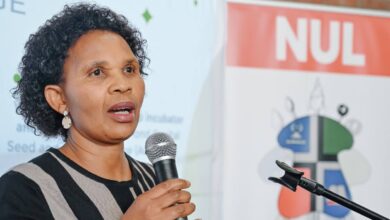IMF Report: Modest Improvement in Lesotho’s GDP Growth and Inflation Eases

The International Monetary Fund (IMF) has highlighted a modest improvement in Lesotho’s economic growth, with the country’s Gross Domestic Product (GDP) expected to rise by 2.2 percent by the end of the fiscal year in March 2024. This data was shared in the IMF’s 2024 Article IV Consultation report, which provides a thorough assessment of Lesotho’s recent economic performance and future outlook.
Inflationary Pressures Ease After Peak
One of the key findings in the report is Lesotho’s inflation trajectory. In the second half of 2023, inflation surged, peaking at 8.2 percent in January 2024. The IMF attributes this increase to several factors, including global economic pressures and local conditions. However, inflationary pressures have since eased, with inflation falling to 6.5 percent by June 2024. This decline is a positive sign for the country’s economic stability, offering some relief to households and businesses that were impacted by rising prices.
Improved Fiscal and External Balances
Lesotho’s fiscal and external balances have also seen marked improvements, thanks in large part to two key developments. The first is windfall transfers from the Southern African Customs Union (SACU), a significant source of revenue for the country. Additionally, the renegotiation of water royalties from the Lesotho Highlands Water Project has bolstered the country’s financial position.
These developments provide Lesotho with a much-needed financial cushion. However, the IMF warns that this new revenue must be managed carefully. In the context of Lesotho’s ongoing development needs, the report advises authorities to save wisely and spend strategically, ensuring that the country’s financial resources are used to drive long-term growth.
Construction Booms, but Challenges Remain
Another positive indicator in Lesotho’s economic recovery is the acceleration of construction activities, primarily driven by the Lesotho Highlands Water Project. The project, which involves the construction of dams and tunnels to supply water to South Africa, has spurred economic activity and contributed to the country’s modest GDP growth.
Despite these improvements, the IMF report highlights several ongoing challenges. Unemployment remains high, signaling a need for more robust job creation efforts. Additionally, key sectors like diamond mining and textiles—historically vital to Lesotho’s export earnings—have seen sluggish performance.
Food Security Concerns
The IMF also raises concerns about food security following an exceptional dry season in 2023. The lack of sufficient rainfall has negatively impacted agriculture, leading to increased food-security challenges across the country. This issue requires immediate attention, as it directly affects the livelihoods of many Basotho who rely on farming.
Strategic Management of Resources is Key
In conclusion, while Lesotho’s economic outlook has improved in several areas, the IMF emphasizes that careful management of financial windfalls and strategic investment in development projects are essential for sustained growth. The challenges of high unemployment, sluggish exports, and food insecurity will require targeted interventions by the government. Strategic fiscal management, in line with Lesotho’s long-term development goals, will be crucial to ensure the nation reaps the full benefits of its improved financial standing.




